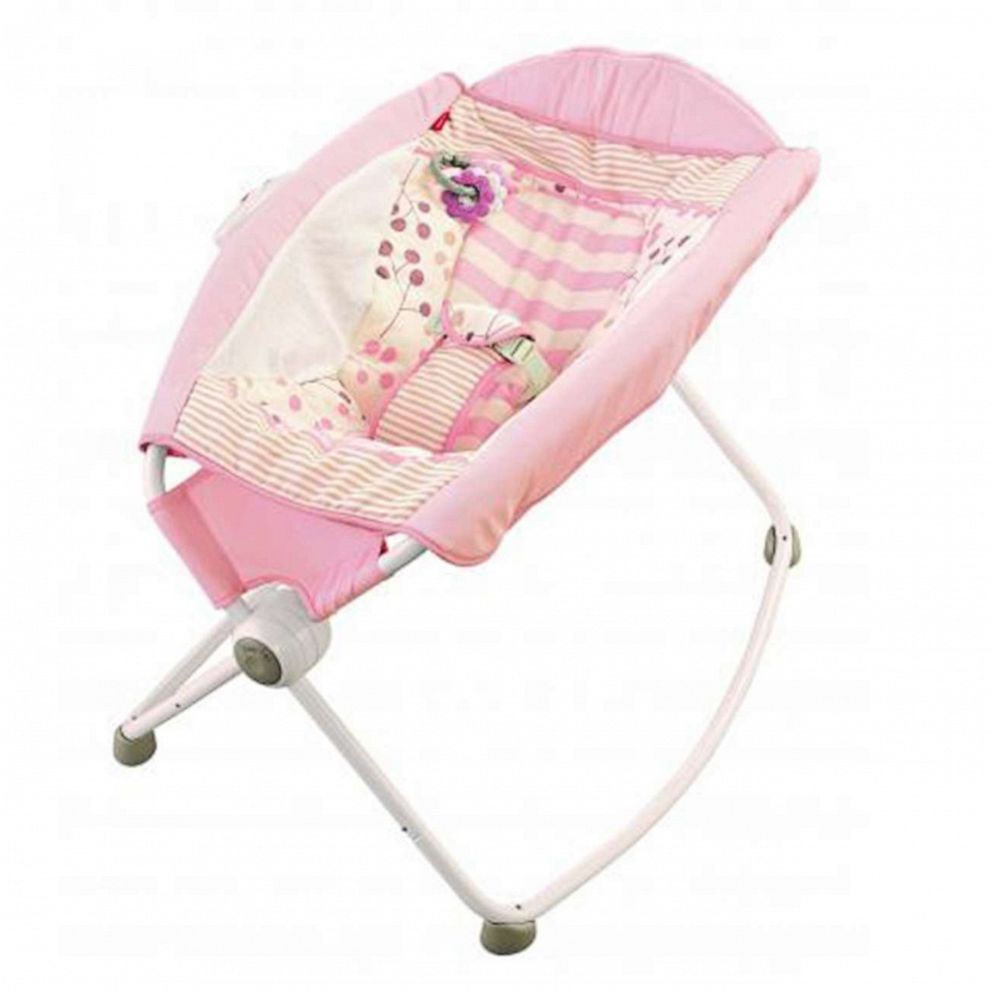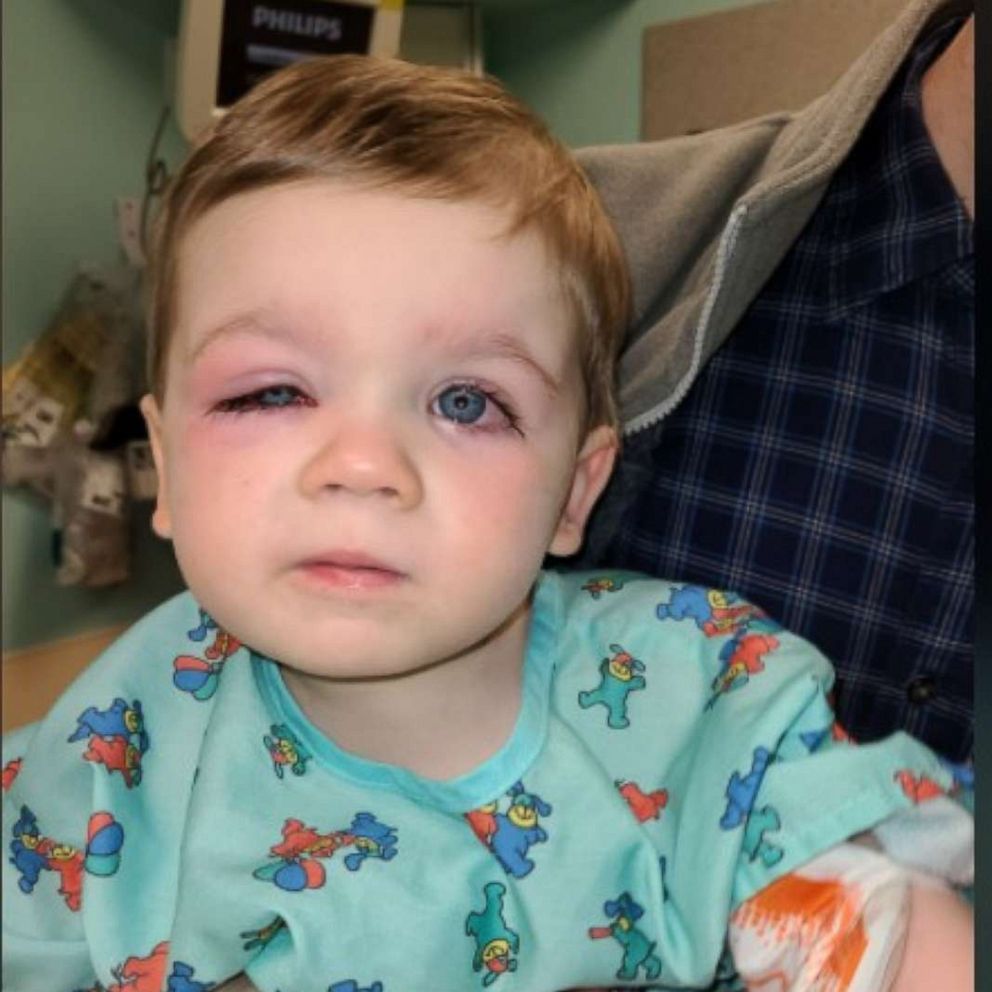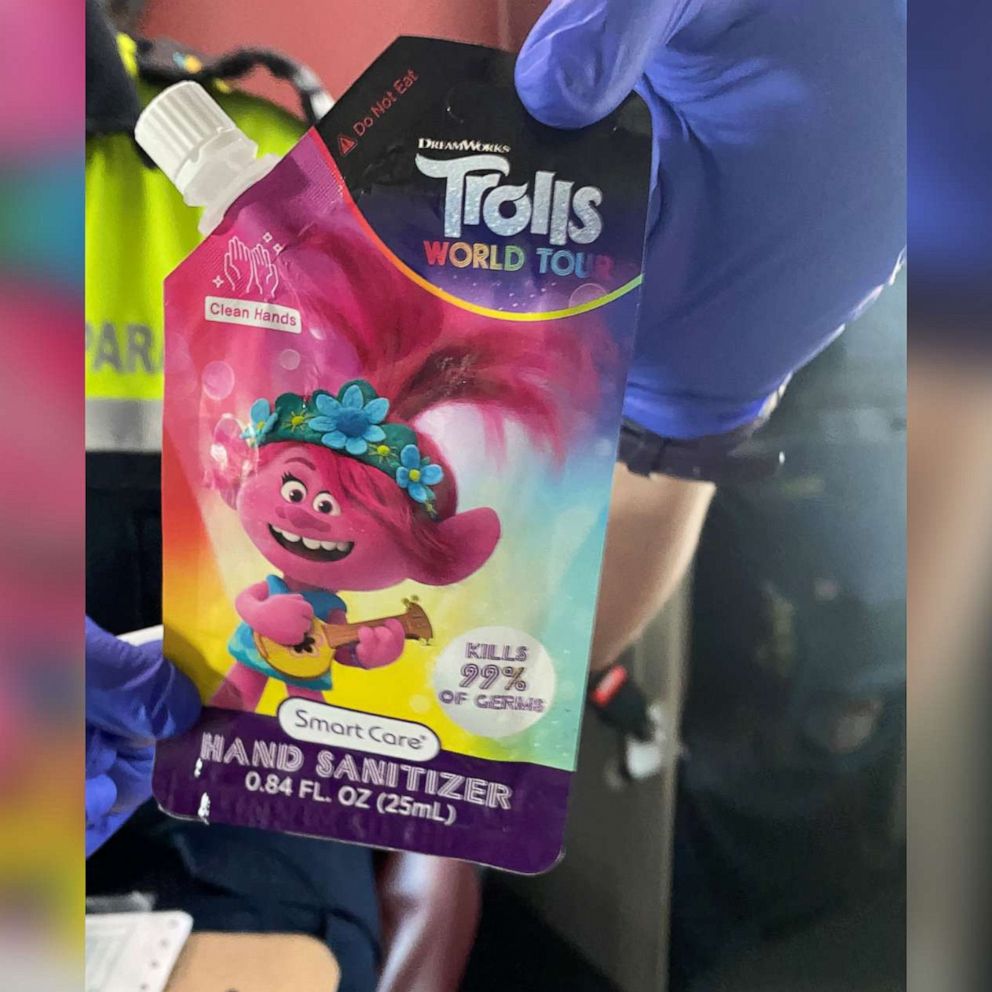Mom calls for change after infant daughter dies in Fisher-Price Rock 'n Play Sleeper
Erika Richter's daughter Emma was just 2 weeks old when she died nearly three years ago while using a Fisher-Price Rock 'n Play Sleeper.
"I think about her all the time. I think about what life would be like with her still around. She would be 3 years old," Richter told "Good Morning America." "When I see children, I think about her all the time, because I just never expected life to be like this."
Now Richter is using her voice to speak out so that no other parents have to endure what she has with Emma's death.
Richter took part in a congressional hearing this Monday that followed up on a report from the House Committee on Oversight and Reform that found Fisher-Price ignored repeated warnings that its Rock 'n Play sleeper was dangerous before the device was recalled in April 2019.
"Now this is all I have left to remember my daughter," Richter said in a video played at the hearing, as she held up baby clothes in front of the camera. "Her outfit from the hospital that still smells like her."
"We trusted a name brand, and we were wrong," Richter added.

The oversight committee's report, based on a 20-month investigation, alleged that Fisher-Price failed to adequately consult with pediatricians or take other key steps to ensure the Rock 'n Play’s design was safe before releasing it to the public and that it ignored multiple warnings from international regulators, pediatricians and customers that the product was dangerous.
Weak federal oversight allowed the product to stay on the market for a decade after it was released in 2009, the report said. During that time, the company took in at least $200 million in revenue, according to the report.
The report found more than 50 infant deaths were linked to the sleeper.
At the time of its release, "prevailing medical science held that infants should sleep flat on their backs on a firm surface," according to the report. The Rock 'n Play puts infants at a 30-degree incline.
Many of the children who died were younger than 3 months old, according to an analysis by Consumer Reports published just days before the 2019 recall.
The cause of death for some of the babies was asphyxia, or the inability to breathe, due to the child's position.
"When I got the Fisher-Price Rock n’ Play Sleeper, I didn’t think anything of it other than it was a Fisher-Price product, so it must be safe, and if so many parents are using it and raving about it, that certainly adequate testing was done and it was safe to use," Richter told "GMA." "It didn’t cross my mind that this product that was called the Fisher-Price Rock n’ Play Sleeper would be unsafe in any way."
"There was nothing that occurred to me that would indicate that it wouldn’t be safe for Emma to use," she said.
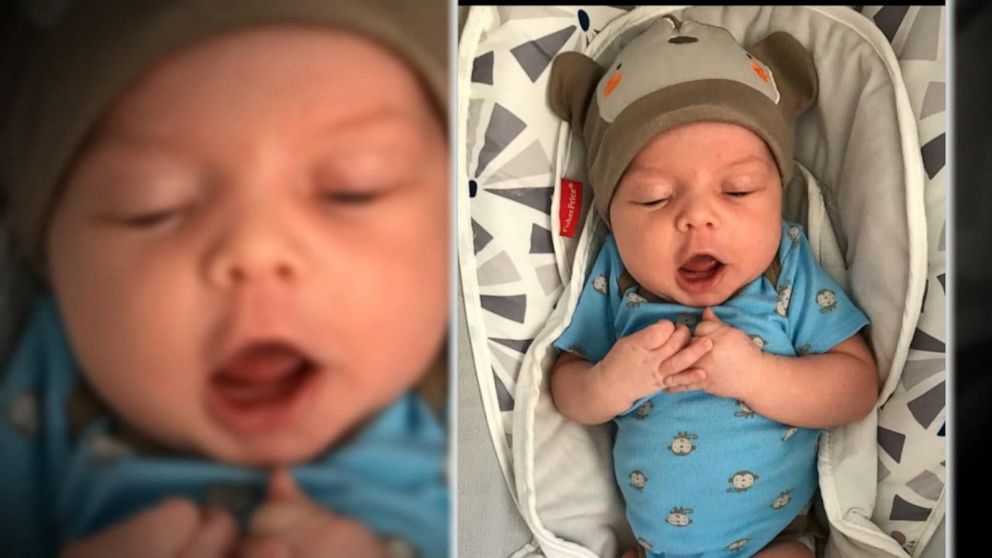
Richter said she only found out after Emma's death about reports of other deaths associated with the Rock 'n Play, which she heard from news reports and other mothers coming forward.
"I think about what life would be like if I had known, and I think about other mothers a lot," she said. "Being able to finally join some of the mothers in a more public way has been something that has been really important to me and something that I’ve been waiting a really long time for, because my heart goes out to all of them. We’re kind of in this club that nobody wants to be in, that nobody should ever be in."
"It’s just so tragic that it had to go on for this long," Richter added. "I really commend all of the other mothers who have come forward and who have talked about this because that’s how we can save lives, is if we’re talking about it."
While Richter said she finds blame in the corporate culture of Fisher-Price and as a regulatory problem, she also sees it as a consumer awareness issue, saying that mothers like herself need to "stick together."
"We need to talk about this. and we need mothers to talk about this with each other and families," said Richter, who is involved in litigation against Fisher-Price. "We can take this and share this information with each other and save children’s lives."
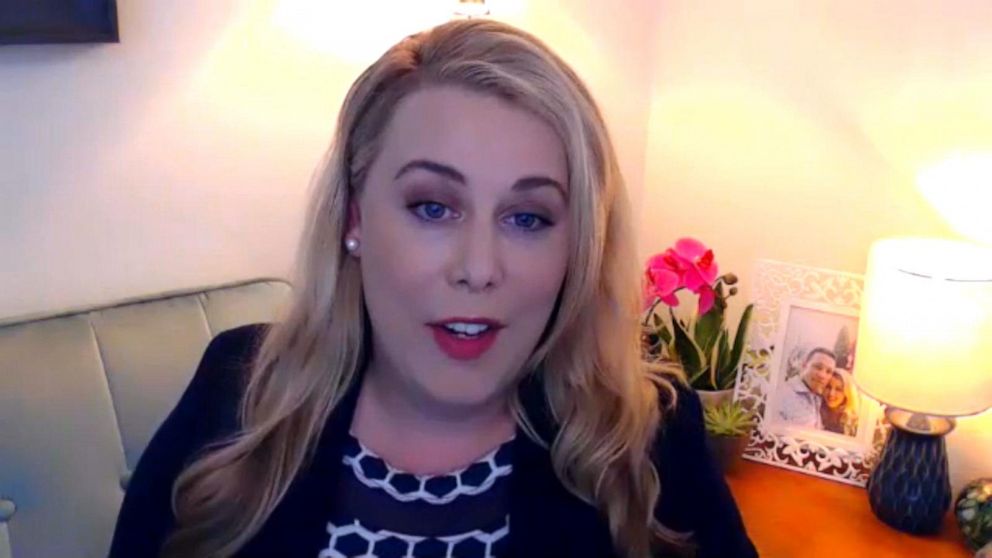
Fisher-Price said in a statement to ABC News that there "is nothing more important" to the company than the safety of its products and that its "hearts go out to every family who has suffered a loss."
"The Rock ‘n Play Sleeper was designed and developed following extensive research, medical advice, safety analysis and more than a year of testing and review," a Fisher-Price spokesperson said. "It met or exceeded all applicable regulatory standards. As recently as 2017, the U.S. Consumer Product Safety Commission (CPSC) proposed to adopt the ASTM voluntary standard for a 30-degree angled inclined sleeper as federal law."
Independent medical and other expert analyses verified that the sleeper was safe when used in accordance with its instructions and warnings, the spokesperson said.
On Monday, Fisher-Price recalled its 4-in-1 Rock 'n Glide Soothers, a model of its baby soothers, after four infants who were unrestrained and placed on their backs were later found dead lying on their stomachs.
A similar product, the 2-in-1 Soothe 'n Play Glider, has also been recalled. No deaths have been linked to it.
Earlier this month, the Consumer Product Safety Commission (CPSC) approved a new federal rule for infant sleep products that will go into effect in 2022. Products will need to be tested to confirm that the angle of the sleeping surface is 10 degrees or lower and that they comply with the CPSC's Safety Standard for Bassinets and Cradles.
Richter said she hopes to see an independent authority established to oversee the safety measures of Fisher-Price moving forward. She is also calling on Congress to repeal a provision, 6B, in the Consumer Product Safety Act that she claims allows companies like Fisher-Price to "self-regulate" when it comes to product safety.
"The way the system is set up, the agency that is there to protect consumers [Consumer Product Safety Commission], actually can’t do its job," she said. "Accountability to me is a government, my government, stepping up and changing that."
Speaking of what individuals can do to bring change, Richter added, "We can certainly act. We can call our elected officials and express outrage. We have mechanisms to correct the system."
